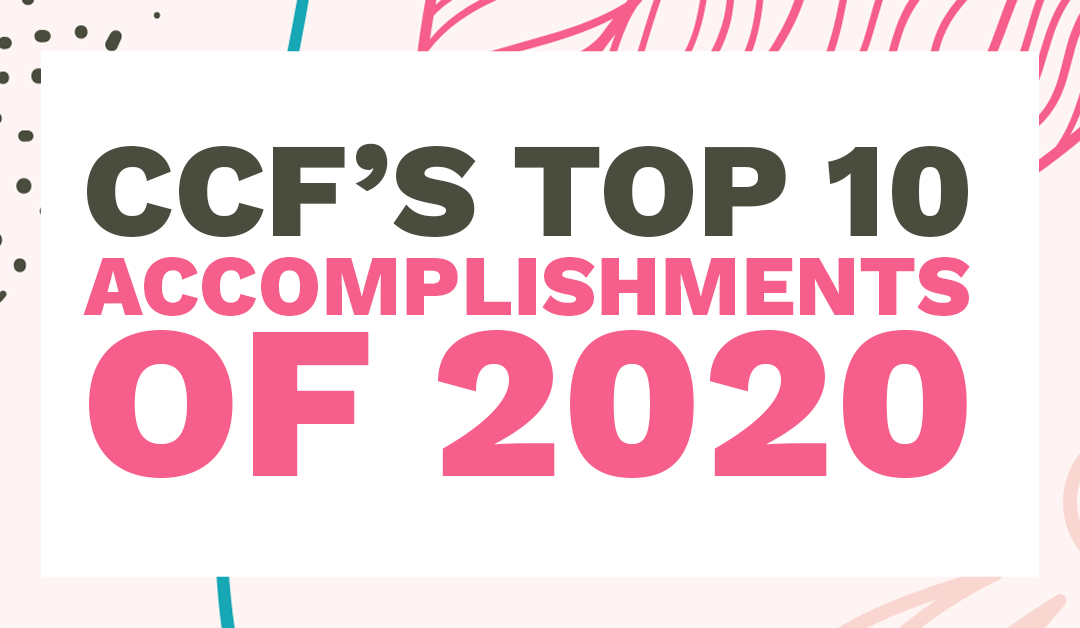By CCF
Hi CCF community,
In mid-July this year, the Community-Centric Fundraising movement was launched. Some people thought it was ridiculous to launch a movement in the middle of a double pandemic — and normally they would be right!
But it turns out, the inequities revealed by the pandemic combined with society’s reckoning with the state-sanctioned murders of Black people made many of us confront the fact that we often are complicit in perpetuating the very injustice we decry in our solidarity statements and that it was time for some changes in our sector. This included the way we do fundraising, which has been historically centered around donors. And when we center the comforts of rich, mostly white folx, we inevitably advance capitalism and white supremacy.
More than five months later, CCF has grown and expanded across the United States and even in other countries. We still have a lot to do, but as this year closes, let’s celebrate a few of the accomplishments we have all created together in this movement.
1. Our launch event was attended by over 2,800 people from around the world!
We also temporarily crashed several websites (including our own) when we recommended people check them out. Among them is native-land.ca, where you can find out which Indigenous nation(s)’ land you are standing on.
2. We published 51 content pieces in the CCF Hub.
We built this content hub to answer the call for a space to share out and take in new perspectives on or challenges existing within fundraising conventions. The majority of these pieces were created by Black and Indigenous women and other women of color, whose voices are often dismissed or even punished in our field.
3. We created a Slack in response to a need and call for community.
Our CCF Slack now has over 2,300 members. From this community there are 76 city-based subchannels that formed, and colleagues have been having various virtual meetings. It is wonderful to see the interactions, advice- and resource-sharing, and also the mutual support among colleagues as we all explore how to do fundraising in more equity-aligned ways.
4. We kicked off CCF’s presence on social media.
We have over 6,000 followers across Instagram, Twitter, and Facebook. Not bad for five months! Social media presence has been extremely helpful to share the work of our many wonderful content creators.
5. We built a base of over 10,000 people on our mailing list for CCF’s Rewind.
The Rewind is CCF’s weekly digest of new content, news, and announcements. Each week, we are reaching more and more folx.
(FYI, our communications and the CCF Content Hub is managed by Stacy, Jordan, and Eric. Thanks, y’all!)
6. The Ethical Rainmaker podcast was launched.
The Ethical Rainmaker (TER) covers multiple provocative topics, including how data has been weaponized against community, how leaders can keep foundations accountable, and how to bring our full authentic selves into the work. Since its launch, TER episodes have been downloaded over 13,000 times. (FYI, TER is produced and hosted by Michelle Shireen Muri.)
7. We worked with CalNonprofits and Institute for Policy Studies on a townhall series.
This series discussed advocacy to enact new legislation on philanthropy, including requiring foundations to double their minimum payout rate from 5% a year to 10% or more a year, as well as to make sure donor-advised funds do not keep being a tool for rich people to hoard wealth and avoid paying taxes. (Check out charitystimulus.org for more details and to sign the petition)
8. We collaborated with incredible partners to advance CCF principles.
Our partners included Willamette Valley Development Officers, Philanthropy Northwest, Grant Professionals Association of Kentucky, Grant Professionals Association of Arkansas, Minnesota Council of Nonprofits, Washington Nonprofits, the University of Washington, University of Southern California’s Sol Price School of Public Policy, Satterberg Foundation, University of Washington’s Museology Masters of Arts Program, Gladiator Consulting, and The Libra Foundation.
9. We released an infographic series on fundraising perceptions in the sector.
The information from these infographics came from a survey that had over 2,100 completed responses from colleagues across the sector. We discovered several key pieces of information, including that 73% of BIPOC fundraisers and 63% of white fundraisers are unhappy with the current fundraising philosophies and practices, with nearly 90% of respondents thinking that these current practices increase white saviorism and poverty tourism. (Note: This series by Anna Rebecca Lopez is still ongoing, so look for more in 2021.)
10. Most importantly, the movement is providing folks with the language and tools to create change.
As colleague Mandie Rice of Seattle Music Partners says, “I found that the CCF movement provided articles and resources to help me re-evaluate what I was taught about fundraising. It helped me find language to the issues that I had ‘felt’ yet couldn’t articulate.”
These are just a few things all of us accomplished together as a movement in 2020. During one of the most challenging years of our lives, we questioned beliefs and practices that we were taught were sacred and unchangeable — we took courageous stands, we lifted up the voices of those who are often ignored, and we built community and supported one another and our missions while doing so.
This is a movement that will change and grow, and there are so many more exciting things in development for 2021. For now though, let us all take a moment to celebrate! And also to take a break. We deserve it!


Wow! What an incredible journey this has been. I’m so proud to be associated with this effort.